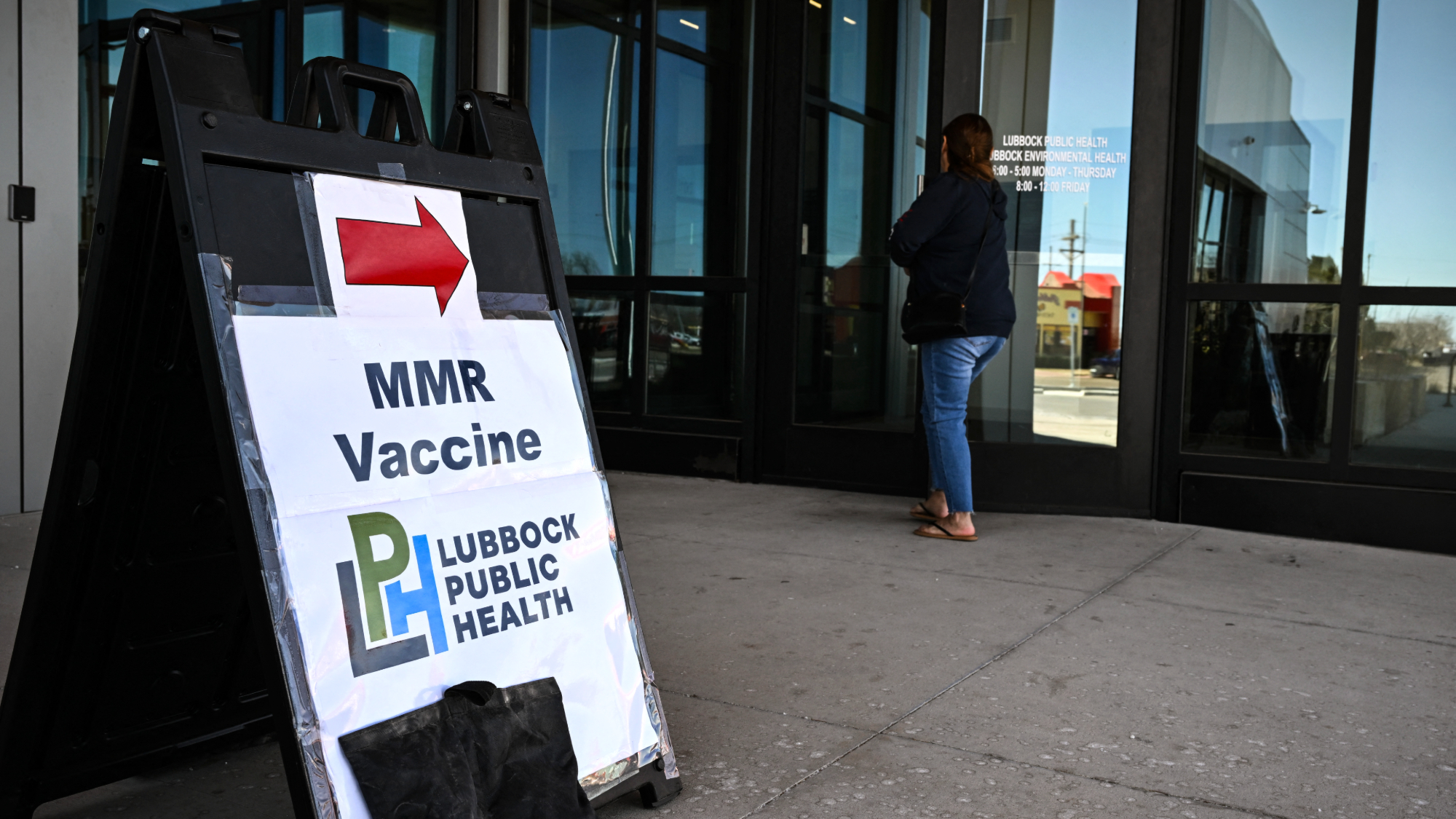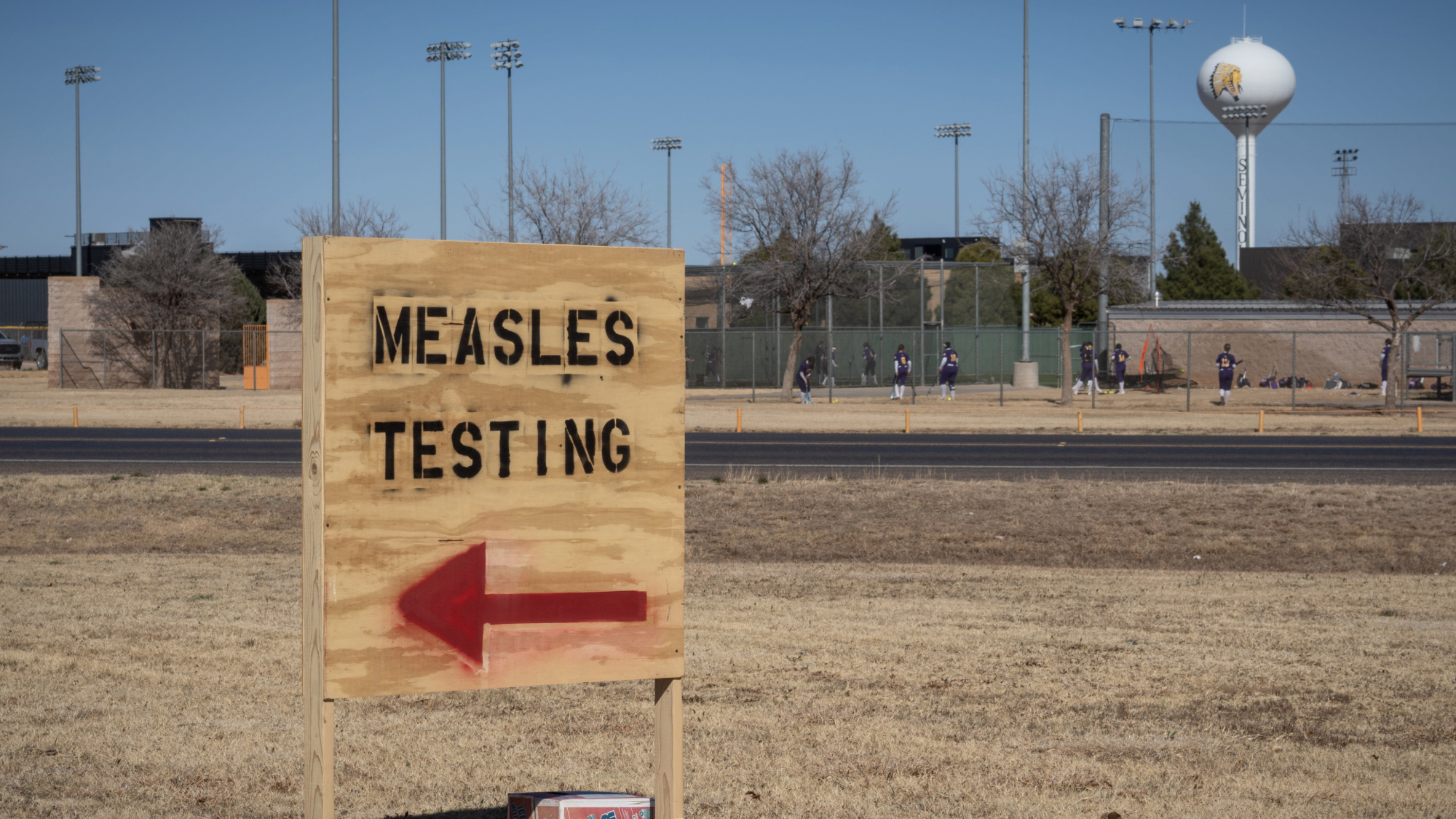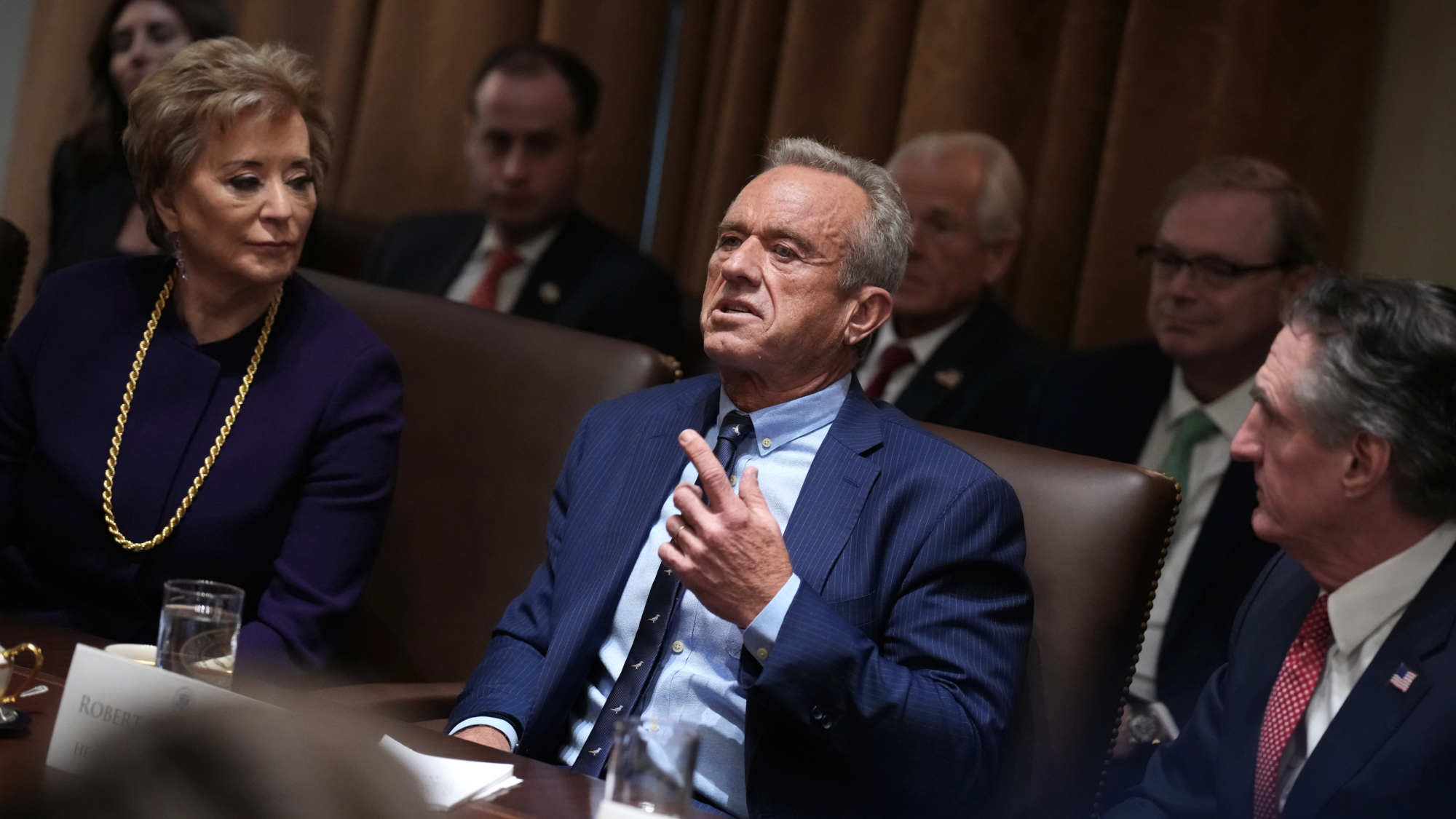How MMR vaccine rates in England fell to a ten-year low
Health officials say more than one in ten children starting school at risk of measles

A free daily email with the biggest news stories of the day – and the best features from TheWeek.com
You are now subscribed
Your newsletter sign-up was successful
Thousands of children are at risk of catching measles as MMR vaccination rates in England hit a ten-year low, the UK Health Security Agency has warned.
In a newly launched joint campaign with the NHS, the government health body is calling on parents and guardians to get their children inoculated with the measles, mumps and rubella (MMR) jab and other childhood vaccines that are “crucial” in protecting against “preventable diseases”.
Latest figures reveal a “significant drop” in MMR uptake since the start of the Covid-19 pandemic, the agency said. According to data covering July to September 2021, 85.5% of five-year-olds in England had received two MMR doses – the lowest rate since 2011. A total of 88.6% of children had been inoculated with their first MMR dose by the age of two.
The Week
Escape your echo chamber. Get the facts behind the news, plus analysis from multiple perspectives.

Sign up for The Week's Free Newsletters
From our morning news briefing to a weekly Good News Newsletter, get the best of The Week delivered directly to your inbox.
From our morning news briefing to a weekly Good News Newsletter, get the best of The Week delivered directly to your inbox.
‘Big impact’
The figures mean that “more than one in ten children aged five are not up to date with their two doses of MMR vaccine”, said The Guardian.
The World Health Organisation (WHO) has warned that 95% need to be vaccinated “to protect communities from the spread of the measles virus”.
Dr Vanessa Saliba, a consultant epidemiologist at the UK Health Security Agency, said: “Even a small drop in vaccine coverage can have a big impact on population immunity levels and lead to outbreaks.”
With “international travel resuming” as the Covid pandemic eases, The Guardian added, “it is also more likely that measles will be brought in from countries that have higher levels of the disease”.
A free daily email with the biggest news stories of the day – and the best features from TheWeek.com
Why has MMR uptake dropped?
Measles can lead to complications including “ear infections, pneumonia, and inflammation of the brain, which require hospitalisation and on rare occasions can lead to long-term disability or even death”, said The Guardian.
All children in the UK are invited for their first MMR vaccine on the NHS at the age of one, and for a second dose when they are three years and four months.
Routine and childhood vaccinations have been available throughout the pandemic. But in a survey of 2,000 parents for the UK Health Security Agency, one in ten “said they were not aware the NHS was still offering the appointments during the pandemic”, The Telegraph reported.
The same proportion said they didn’t take their child to get the jab “because they didn’t want to burden the health service”.
The poll, conducted by Censuswide, also found that just 38% were aware that measles can be fatal. Almost half of the parents quizzed were not aware that measles can lead to serious health complications.
An estimated “20 million measles cases and 4,500 deaths have been prevented in the UK” since the measles vaccine was introduced in 1968, said The Telegraph.
Stephen Baker, professor of microbiology at the University of Cambridge, warned if parents stop immunising their children “we will go back to the Victorian era”.
“We look upon these things as a bit of a kind of thing in the past because they are a thing in the past, not because we’ve got rid of them, it’s because we’ve controlled them through immunisation,” he told the paper. “If we take away vaccines, [they’ll] bounce back.”
Health officials advise any parent who is unsure if their child is up to date with their vaccines, or who wants to arrange a jab, to contact their GP practice.
-
 ‘The West needs people’
‘The West needs people’Instant Opinion Opinion, comment and editorials of the day
-
 Filing statuses: What they are and how to choose one for your taxes
Filing statuses: What they are and how to choose one for your taxesThe Explainer Your status will determine how much you pay, plus the tax credits and deductions you can claim
-
 Nan Goldin: The Ballad of Sexual Dependency – an ‘engrossing’ exhibition
Nan Goldin: The Ballad of Sexual Dependency – an ‘engrossing’ exhibitionThe Week Recommends All 126 images from the American photographer’s ‘influential’ photobook have come to the UK for the first time
-
 Is the US about to lose its measles elimination status?
Is the US about to lose its measles elimination status?Today's Big Question Cases are skyrocketing
-
 Texas declares end to measles outbreak
Texas declares end to measles outbreakSpeed Read The vaccine-preventable disease is still spreading in neighboring states, Mexico and Canada
-
 Measles cases surge to 33-year high
Measles cases surge to 33-year highSpeed Read The infection was declared eliminated from the US in 2000 but has seen a resurgence amid vaccine hesitancy
-
 RFK Jr. visits Texas as 2nd child dies from measles
RFK Jr. visits Texas as 2nd child dies from measlesSpeed Read An outbreak of the vaccine-preventable disease continues to grow following a decade of no recorded US measles deaths
-
 Measles outbreak spreads, as does RFK Jr.'s influence
Measles outbreak spreads, as does RFK Jr.'s influenceSpeed Read The outbreak centered in Texas has grown to at least three states and Health Secretary Robert F. Kennedy Jr. is promoting unproven treatments
-
 RFK Jr. offers alternative remedies as measles spreads
RFK Jr. offers alternative remedies as measles spreadsSpeed Read Health secretary Robert F. Kennedy Jr. makes unsupported claims about containing the spread as vaccine skepticism grows
-
 Texas outbreak brings 1st US measles death since 2015
Texas outbreak brings 1st US measles death since 2015Speed read The outbreak is concentrated in a 'close-knit, undervaccinated' Mennonite community in rural Gaines County
-
 What Florida is — and isn't — doing to curb the biggest measles outbreak in the US
What Florida is — and isn't — doing to curb the biggest measles outbreak in the USTalking Points DeSantis appointee defies expert consensus to stop the spread